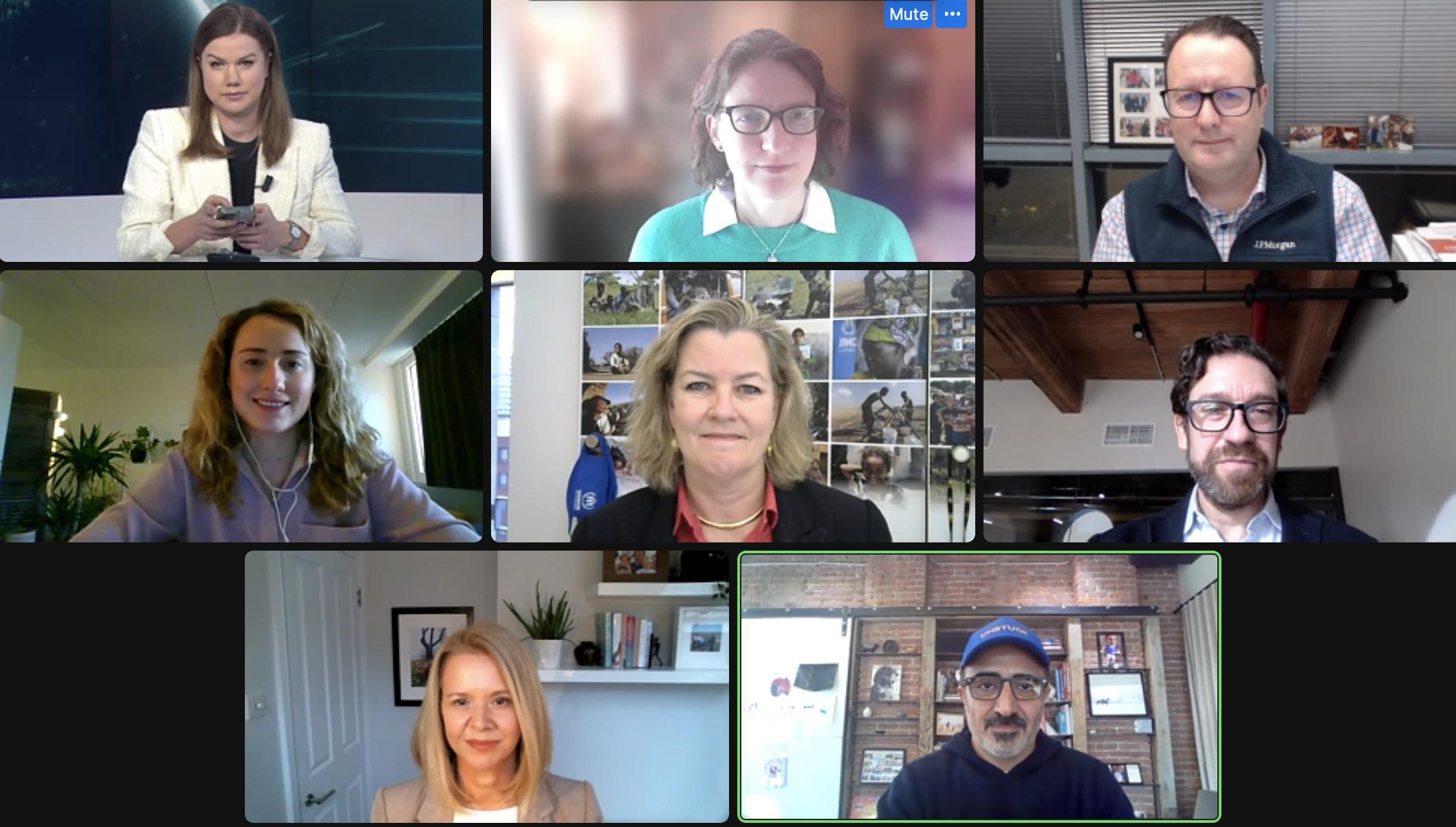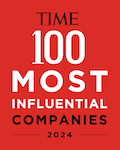Tent brings together business leaders to share best practices on integrating refugees from Ukraine into Europe’s workforce

Since the beginning of the war, almost 8 million people have fled Ukraine. Many have come to Europe, in what has been the biggest influx of refugees since World War II. There has been an incredible show of support – at all levels – for refugees from Ukraine, including from the European business community. However, the vast majority of those displaced by the war of working age are women and most are still unemployed, despite having strong educational and professional backgrounds. Thus, there is an urgent need for even more businesses to support Ukrainian refugees as they strive to settle in their new communities.
Tent hosted a virtual event “Integrating Ukrainian Refugees into Europe’s Workforce” on December 14 to gather European business leaders, as well as representatives from NGOs and public organizations, to share best practices on how to help refugees gain employment in Europe, while mobilizing further action.
Moderated by Sasha Vakulina, Euronews’ Business Editor who is herself a Ukrainian national, the program highlighted the challenges refugees from Ukraine face when trying to access the European job market – such as language barriers, lack of childcare, housing, and transportation – and how businesses can adapt their processes to help overcome them.
Opening the program, Hamdi Ulukaya, founder and CEO of Chobani and founder of Tent, and Kelly Clements, UN Deputy High Commissioner for Refugees, discussed the current situation for Ukrainian refugees in Europe.
Clements stressed that more refugees are likely to come to Europe in the coming months and that many of those who have already arrived are here to stay, as the war continues and the cold winter sets in amid attacks on energy infrastructures. “People are moving, they are moving within the country, and they are continuing to go and seek other provisions outside the country and things could get much much worse,” Clements said.
With many refugees still looking for jobs to provide for themselves and their families, Ulukaya urged the businesses in attendance, to partner with Tent and learn from their peers’ experiences of hiring and training displaced Ukrainians, saying: “We are really encouraged to see how many companies in Europe are stepping up….At Tent, we have created this environment, this platform, where companies come together and share best practices. Facing challenges together is much easier than doing it alone.”
Tent launched in June the “Sunflower Project” – a pan-European initiative focused on accelerating the inclusion of Ukrainian refugee women – and is already working with 50+ major companies in Europe to take concrete steps to economically integrate Ukrainian refugees.
To shine a light on the inspiring efforts of the business community to date, the virtual event also included a panel of senior representatives from Accenture, JP Morgan, and Marriott, who shared their respective experiences in training and employing Ukrainian talent.
Francisca Martinez, CHRO for EMEA at Marriott, shared how her company is currently employing over 550 refugees across their hotels in Europe – including many who did not have prior experience in hospitality, but were trained by Marriott for their new roles. She explained that as the war broke out, “the first priority was helping people to safety and supporting refugees with basics, such as food, shelter, access to medical and legal advice, support for families… We then quickly turned our attention to their longer-term wellbeing, and that meant helping them secure employment and settle down in their new country.”
Paul Brazier, MD for Poland at J.P. Morgan, stressed how positive employing refugees can be from an employee engagement perspective. He explained that, before the war started, a significant portion of his company’s existing workforce in Poland were Ukrainian nationals, and that it was J.P. Morgan’s employees who challenged their leadership to do more to respond to the Ukrainian refugee crisis. To answer the call, the company developed a work and upskilling program run by employees, which crucially included housing assistance and childcare support, to allow refugees to learn and work.
“It’s been beneficial to our employees, as well as the participants,” Paul remarked. “The positivity you get back from your own employees is very powerful.”
Accenture, which has a long-term commitment to hiring refugees, was able to act quickly when the Ukraine war started in February 2022. Lucy Murdoch, Senior Director, Global Corporate Citizenship at Accenture explained how the company amended HR processes and set up a team to support their response to the new refugee crisis, helping Accenture to swiftly hire refugees from Ukraine across Europe, across a multitude of functions, including in high-skilled jobs.
Reflecting on the company’s prior refugee hiring efforts, she explained that while hiring refugees is certainly beneficial to refugees who are looking for stable jobs, it has also helped the company to overcome labor shortages: “It became really obvious to us that the refugee potential was untapped and that it could help bridge gaps regarding labor shortages, as well as completely transform the lives of the individuals themselves.”
Underscoring the need for businesses to welcome Ukrainian refugees into their workforces, the event also saw Olesia Belko, a refugee who fled Ukraine the day the war started for the Netherlands. Olesia shared the challenges she faced while looking for employment, and how she found a job as a recruiter at ManpowerGroup where she now helps the company recruit more refugees from Ukraine, saying: “I am delighted to work in a company which helps people from my country, especially in this difficult situation.”
Gideon Maltz, Tent’s Executive Director, concluded the program by calling companies to action, asking them to step up with the help of Tent: “We know that when businesses come together to make collective commitments, we can accelerate action, motivate greater ambition, drive real impact – and send a powerful message that businesses stand with refugees.”
To find out more about the Sunflower Project, please click here.
Watch the event recording below.
Watch the recording of the full event!
 Tent Named to TIME100 Most Influential Companies List
Tent Named to TIME100 Most Influential Companies List